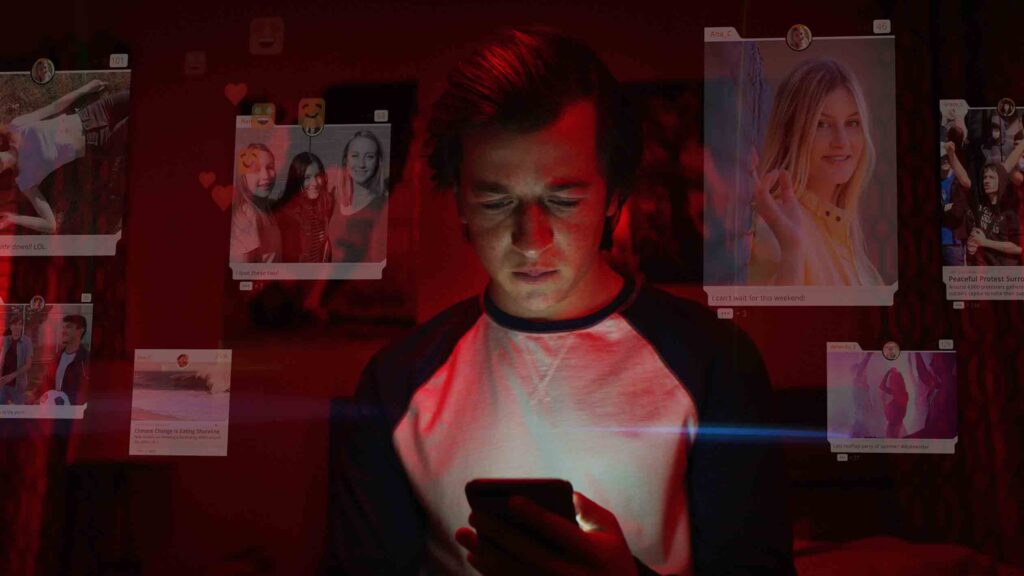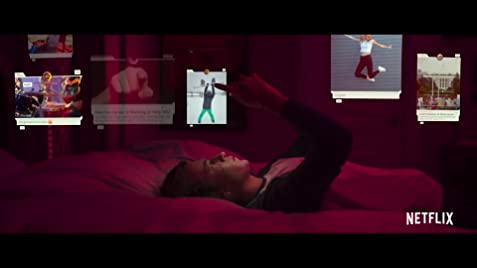Words By Libby Mills
Within the last decade, there has been one inarguable change that has altered the backdrop of civilisation as we know it – social media. With the early days of the internet first emerging in the 1950’s and continuing to evolve, it was the creation of electronic mail (email to you or I) in 1971 that began a chain reaction of a new era of communication. In 1997, SixDegrees appeared. The first. Ever. Social media site. #OMG. SixDegrees combined profiles, friends and school connections all in one social and online space. This saw the likes of Friendster and LinkedIn in 2002-2003, before a new competitor entered the game. A competitor who would go on to not only change, but run the game – 2004, the birth of Facebook. The first decade of the new millennium saw the rise of these social media platforms popping up everywhere.The second decade of the new millennium, however, has seen the first ever generation growing up with social media during their teenage years and the first ever generation to not know technology to not exist. And there we have it, a very real social dilemma.

Queue The Social Dilemma’s entry to Netflix in September 2020. Just in case we need anything else to lose sleep over other than the current global pandemic, award-winning filmmaker Jeff Orlowski offers up the perfect combination of a slight existential crisis mixed with some home truths for humanity. His documentary is long enough to hit home to its audience that we are facing a real threat, but interesting enough to make you want to listen and do something about it.
The documentary starts out with a simple quote:
“Nothing vast enters the life of mortals without a curse” Sophocles
before going on to highlight just the toppings on the cake of the bi-products of social media. Isolation, loneliness, mental health issues, tech addiction, surveillance capitalism, fake news, snapchat dysmorphia, polarization. After ticking off a reasonable selection of this rather intense grocery list of social media problems, we are introduced to a host of A-List tech-lebrities. Facebook, Twitter, Instagram, Google, YouTube, Apple, Firefox, Pinterest directors, designers, executives and engineers, you name it – it’s almost like the Oscars of the tech world.
One by one, each voice contributes their own speciality to the conversation surrounding the documentary. The plethora of knowledge is undeniable, and almost unnerving. All interviewees provide an insight into the era of innocence, when social media was just that – a way to make money, yes, but to provide an online means of socialising. Justin Rosenstein, co-creator of the Facebook ‘Like’ button, explains how that’s exactly what it was meant to be – a simple ‘Like’ button. He even goes on to say, the whole purpose behind the idea of the ‘Like’ button was to encourage positivity and kindness within the world of Facebook. This is echoed in former YouTube engineer Guillaome Chaslot’s response to his algorithm, stating “it worries me that an algorithm I worked on is actually causing polarisation within society.” It seems as time unfolds, that only then can true hindsight be seen in regards to the scale of the power of social media. Alex Roetter, former senior Vice President of engineering at Twitter, shares “Wwhen I was there I always felt like fundamentally it was a force for good…I don’t know if I feel that way anymore.”
So why is it that social media – something that can be such a force for good – can also be so destructive? Tristan Harris, former Google design ethicist and now Co-Founder of Centre for Humane Technology helps explain. Harris had always been intrigued by magic, ever since he was a child. In the documentary he connects the similarities between magicians, and the illusions they perform, with his time spent at Stanford University. During his time studying, he learnt about building the psychology that persuades people into technology, within the Stanford Persuasive Technology lab. It is this research that is purposely incorporated within the creation of social media apps that makes it seem addictive. In fact, Dr Anna Lembke, Medical Director of Addiction Medicine, says that’s exactly what social media is – a drug “there is no doubt that a vehicle like social media, which optimises this connection between people, is going to have the potential for addiction.” Dr Lembke touches on the reality that human beings have a psychological imperative of connecting with other human beings, and that it is this that directly releases dopamine. The combination of humanity’s need for connection and the psychological research into what persuades us is the magic money-making concoction. Part of the interaction with social media that feels, and probably is, so addictive is the process of refreshing your feed. Joe Toscano, former experience design consultant for Google, explains that this is no accident. The action that is carried out through the refreshing of an app is labelled by psychologists as a ‘positive intermittent reinforcement’. The whole experience of this is the not knowing whether you’re going to get anything, but the desire and knowledge that you could is enough. Harris goes on to add that the pull down required to refresh a feed purposefully mimics the slot machines in Las Vegas – it was at this point in the documentary I began to have a real ‘ah-haaaa’ moment.

But, other than finding the refresh button a bit addictive and probably checking our phones too much – what is really at stake here? The answer: a whole generation. Jonathan Haidt, PhD and NYU Stern School of Business Social Psychologist, breaks down the statistics. In the U.S alone, depression and anxiety specifically in teenage girls has increased astronomically. The amount of teenage girls admitted to hospital every year due to self harm was reasonably stable until 2010-2011. Since 2009, admissions have increased by 62% in girls aged 15-19 and by 189% in girls aged 10-14. This is further reflected in the suicide rates, increasing by 70% for girls aged 15-19 and 151% for girls aged 10-14 – in comparison to the years between 2001-2010. Even within these two different age brackets, there is an indisputable larger increase for the girls aged 10-14 – this is more than a social dilemma, social media can cause serious harm and even kill. As Haidt points out, not only are these numbers incredibly concerning but behind each statistic is a young girl and a family affected.
Throughout the documentary it becomes evident just how complex the web of social media really is. From global users having very little knowledge of just exactly how much of their online footprint is being tracked, monitored and recorded, to the power of big tech companies to influence political elections. Social media isn’t just an app anymore, it isn’t just an ‘online space’ that starts and ends with the opening and closing of a laptop – it is ingrained within the very fabric of our ever evolving society. Harris describes what has been created as ‘a digital Frankenstein’, and he is not all wrong. How much is our society, democracy and civilisation really at risk? In the documentary Jaron Lainer, author of ‘Ten Arguments For Deleting Your Social Media Accounts Right Now’ gives a frank and direct answer. That through our own willful ignorance, we have the potential to “destroy civilisation”, environmentally, economically and democratically.
“We’ve created a world in which online connection has become primary, especially for younger generations. And yet in that world where two people connect, the only way it’s financed is by a sneaky third person who’s paying to manipulate those two people. So we’ve created an entire global generation of people who are raised within a context of the very meaning of connection and culture is manipulation.”
With the world becoming ever more polarised thanks to fake news now spreading four times faster on Twitter alone, industry designers leaving because of ethical concerns – it seems too overwhelming to take any notice. One simple piece of advice all of the interviewees seem eager to share is the power of turning off your notifications. This small change breaks a chain in the cycle of phone-checking when your attention is most wanted. After all, “if you’re not paying for the product, then you are the product.” Perhaps a form of social media enlightenment is coming? Co-Founders of a new movement Centre for Humane Technology and interviewees within the documentary, Tristan Harris, Aza Raskin and Randima Fernando, all share the belief that technology can be realigned with society’s best interests.
“Together with our partners, we are dedicated to radically reimagining technology for the common good of humanity.”
Social media is part of 2 billion people’s reality, and with movements such as the Centre for Humane Technology, let’s hope the future of social media helps to enhance humanity as supposed to isolate and polarise.
https://www.thesocialdilemma.com/the-film/

